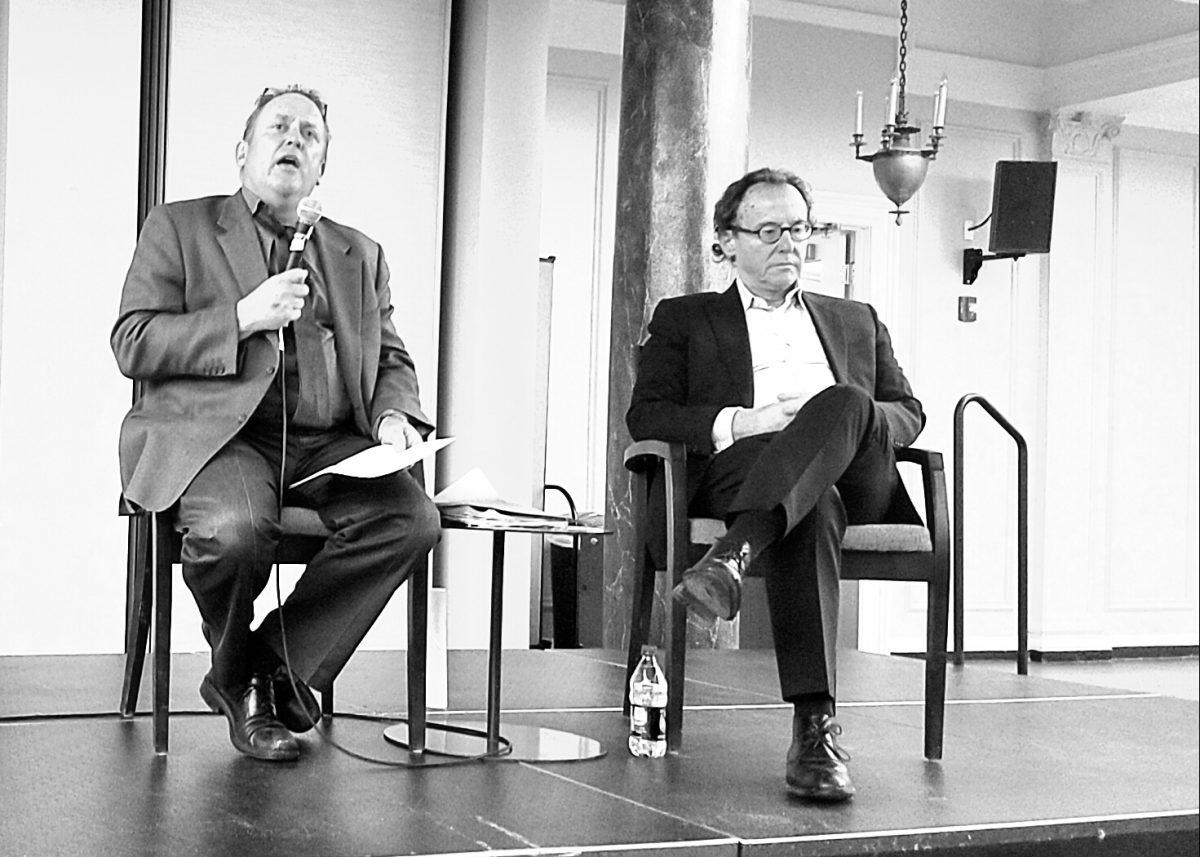“The optics aren’t great,” admitted Wellesley Professor Thomas Cushman as he and another white man prepared to begin their conversation on why “Identity is Not Politics.” Nonetheless, last Wednesday Columbia University professor and author of The New York Times article “The End of Identity Liberalism,” Mark Lilla spoke with Cushman on the controversial topic in front of a full house. Many, including myself, initially thought that Lilla might dismiss the struggles associated with minority groups as irrelevant or exaggerated. However, looking past the provocative title, I found that the lecture revolved around a case for playing politics.
Since we live not in a pure democracy but in a democratic republic, decisions are made by those who win elections, whether we like it or not. Thus, Lilla argues that though ‘minority issues’ are real and do need to be addressed, they have to go on the back burner in the media and on the campaign trail. He advocates for expanding the liberal base by placing issues that directly affect the ‘vast majority’ of Americans at the forefront of the platform in order to win elections and put liberals in positions of power to then quietly pursue more specific social issues. I, however, have no desire to see a politician duck questions on LGBTQ+ rights and mandatory minimums even if they would clandestinely attempt to address these issues if elected, nor do I believe that this is a viable strategy for winning elections.
One thing that attracted so many voters to President Trump is their perception, disillusioned as it may be, that he “tells it like it is.” Voters have become so wary of the backhanded games politicians play that they were willing to elect a novice just to see if he could shake up Washington. Dodging specific social issues may be a good way to avoid making enemies, but it is also a good way to lose allies. Something Lilla failed to address is that these ‘minority issues’ don’t only matter to the group of Americans they directly pertain to. I am heterosexual and no candidate who denies or dismisses gay rights will ever win my vote. That’s the thing about most liberals: though we sometimes deal with issues surrounding identity, we pride ourselves on equal treatment for all Americans, regardless of how they identify. In his New York Times article, Lilla advocates for “appealing to Americans as Americans.” But how can a liberal candidate do this and then ignore that some citizens systematically have their rights infringed on—the same rights that are supposed to be guaranteed to them as citizens of the United States. Pretending that we are all equal when we clearly suffer from gaping inequalities is irresponsible, and to do so in the name of winning an election is immoral.
Though it is worthwhile to try to expand the liberal base, avoiding the issues surrounding civil rights and equal treatment will more quickly deface our ideology than develop it. This is not to say that leftist ideology consists solely of ‘minority issues’, but the ideas of equal opportunity and equal protection that drive those issues are also the values at the heart of the liberal identity. It may seem paradoxical, but I believe there is a way to bridge or at least lessen the divide in what was once an ideological spectrum without compromising the core values on either side. This starts with conversation. Despite Lilla’s claim that simply having a discussion isn’t good enough, he advocated vigorously for having conversations with individuals whose values not only differ from, but contradict our own. It is here that I join his calls for change.
After this election, it is safe to say that there is next to no need to invigorate the liberal base, which means that the best way to perpetuate liberal values is to rally support from those who don’t already agree to you. This means that, starting now, we have to make the conscious shift from ‘expressive’ to ‘persuasive expression’ of our beliefs. Unfortunately, this means shifting away from clever memes and satirical talk shows that only alienate those with opposing views, and towards the much less sexy: logical arguments and open minds. Though surely not all conversations will be productive, it is at the very least a step in the right direction. If we make no attempt to understand the motives of those on the other side of the aisle than we can’t possibly expect them to try to understand ours.
Identity is political, but in Lilla’s eyes it is not an effective way to play politics. With our country divided, there is an urgent need to find commonality that we have to address, but that cannot come at the cost of dismissing blatant and widespread injustice. If these issues are taken out of the mainstream media and out of the debates, it will become far too easy for elected officials to continue to dismiss them in once in office. Compromising on our calls for equal rights for all Americans in the name of getting a “liberal” elected will spell not only the end of identity liberalism but also the end of liberalism itself.




